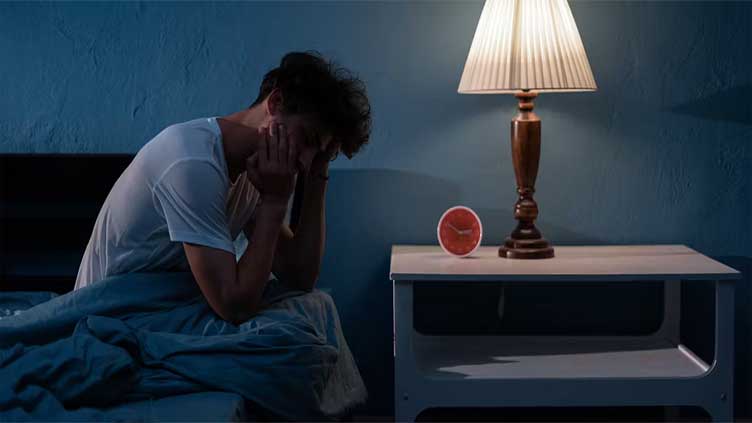How many times it's normal to get up in night to pee

More frequent visits may also be a warning sign of urinary tract infection
(Web Desk) - If you find yourself often getting up in the night to use the bathroom, the chances are you're perfectly normal.
That's according to hospital doctors, who say needing to pee once in the night is nothing out of the ordinary if you're under the age of 60.
Nocturia (needing to pee at night) can be caused by many different issues.
'Some, such as drinking too much later in the evening, or having too many caffeinated drinks throughout the day, may be easy to solve,' said nurse, Davina Richardson, at charity Bladder and Bowel UK.
However, going more frequently than once a night could indicate a problem.
Using the bathroom excessive amounts could be a sign of a range of conditions — from the less serious urinary tract infection to alarming diseases such as diabetes, high blood pressure, prostate cancer or even heart disease.
The threshold for what is considered 'normal' changes with age, however.
For the over-70s, waking up to pee twice each night is relatively normal, according to the NHS.
And once you get to your 90s, this could increase to four times a night.
That's because as the body ages it produces less of hormone called the antidiuretic hormone (ADH).
This regulates how much water we hold on to and helps prevent dehydration.
However, if the increase in frequency of bathroom use comes with other symptoms, it could be a cause for concern.
Feeling very thirsty, losing weight without tying and blurry vision in addition needing to use the bathroom more can be a sign of diabetes.
That's because high blood sugar increases thirst and the need to reach for a glass of water, leading to frequent toilet trips during the night, the NHS explains.
High blood sugar levels also irritate the bladder causing you to pee more often, it adds.
If the frequent need to pee is accompanied by chest pains, swollen ankles and feeling sweaty, it could be a sign of a heart condition.
A heart condition can cause poor circulation which can lead to ankle swelling. This extra fluid is reabsorbed into the blood stream and removed by the kidneys increasing the need to use the toilet, the NHS explains.
But more frequent visits may also be a warning sign of an urinary tract infection, according to Bladder and Bowel UK. This is usually accompanied by a burning sensation and cloudy or bad smelling urine.
Other causes include kidney stones or an overactive bladder, certain medicines, sleep disorders and excessive fluid intake.
Nocturia can cause significant disruption to sleep, with a knock-on negative effect on daytime functioning, quality of life and long-term health and wellbeing, explained Ms Richardson.
Although it can be an early symptom for some medical conditions, it can also be fixed with simple lifestyle changes, she added.
Treatment advice for nocturia include reducing your intake of caffeine, fizzy drinks and alcohol, avoiding drinking large amounts of fluid during the evening hours and avoiding a high protein diet especially late in the evening.
The NHS suggests those who need the toilet at night to have their last glass of water at 8pm instead of 10pm.
But still make sure to drink the same amount of water just earlier in the day.
Maintaining good sleep hygiene is another lifestyle change that could help.
That's because nocturia can sometimes be a sign of poor sleep, as you’re more likely to notice nighttime urges when you’re awake or in shallow sleep.
However, the NHS advises those who do go to the toilet more than usual in the middle of the night to speak to their GP.


